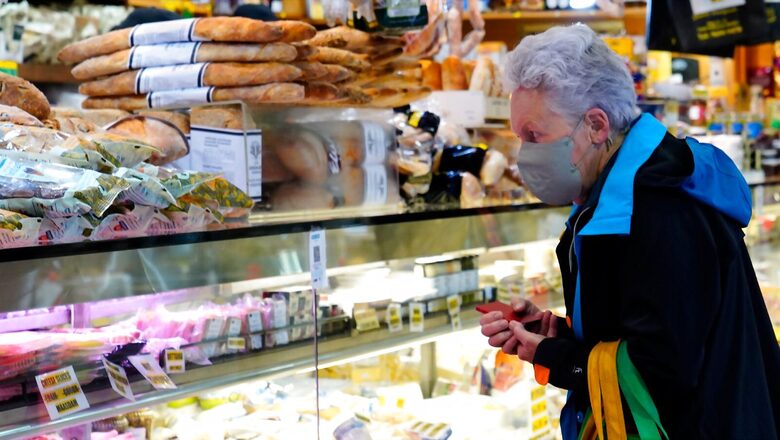
views
The Covid-19 pandemic had necessitated an online presence for most retailers. Be it education, hospitality, health, or BFSI services, going digital was the only way to survive in a world where people were afraid to step out. However, as the pandemic’s grip loosened, schools reopened and so did markets. Many companies like Nykaa, Byju’s, and Pepperfry, which started out as online ventures, have slowly opened physical stores.
When we asked a Hyderabad-based startup, Subba Fashions, about why they opened a physical boutique after the pandemic, its founder, Keerthi Muddu, said, “People still like to touch and feel the products they are buying, especially clothes. We did not plan to open an offline store two years ago, but we noticed that shoppers are going back to the markets. That is why we felt that a physical shop was necessary.” Did opening the boutique drive up their sales? “No,” replied Keerthi. “The bulk of our orders come from other countries and thus we sell more online. However, our local patrons have benefited from the new store.”
A study by the International Council of Shopping Centers found that opening a brick-and-mortar store brings traffic to the retailer’s website. Opening a new physical store in a market leads to a 37 per cent average increase in web traffic, said the study. Thus, an offline store can go a long way in increasing the visibility of a brand. Research by KPMG reiterates what Keerthi felt about her business. The study reconfirmed that customers still like to see, experience, and test products physically before making a purchase.
Demographics matter
The demographics of buyers too come into focus here. Susmitha Lakkakula, founder of CloudTailor, a direct-to-consumer (D2C) platform that provides tailoring solutions to women, found that many women over the age of 35 years still prefer to come to a physical shop to get their dress measurements taken. “Initially, CloudTailor was going to be only an online tailoring service. But as time passed, we realised that we have two segments of consumers. Women who fall under the age group of 22-35 are digitally savvy and don’t believe in going through the hassle of travelling to visit the tailor when they can access the services digitally anytime and from anywhere. We decrease boutique anxiety by offering online measurements, on-call fashion designer consultation, and live order tracking. But a majority of women above 35 years of age, who are not digitally native, weren’t comfortable with the online model from the word go. Many of them wanted to visit the store and experience the entire process because they are accustomed to traditional tailoring,” she said. Thus, CloudTailor now has exclusive brand outlets (EBOs) in Bengaluru, Hyderabad, Tirupati, Siddipet, and Kochi.
Explaining the advantages of a brick-and-mortar store, the entrepreneur added: “EBOs play a very crucial role for us by allowing customers who are not digitally native to get comfortable with our model. They serve as bridges to make them comfortable with our process as the experience and quality are always the same irrespective of the channel. We have our fashion designers in these stores who can help customers with design suggestions. The store is also equipped with a sewing machine for basic alterations. We also have fabric swatches of our fabric marketplace partners, accessories, and embellishments for customers to choose from.”
Visibility
For Dr Sanchit Sharma, who founded Ayouthveda, opening physical stores in Delhi was about increasing visibility in a market already saturated with products. “The idea was to penetrate in this highly competitive space where the market is flooded with a plethora of brands venturing into the personal care category. Any flagship store stands as a silent salesman speaking for the brand. It provides an opportunity to consumers to experience the brand in an innovative way and create a brand recall value. Additionally, having our stores in the best visibility areas of Delhi is serving the purpose beautifully. We have plans to take the brand to more urban cities by the second quarter of 2023.”
As more and more Indians get vaccinated, the fear of going out and shopping is reducing. For now, it seems that the hybrid model of online and physical stores is here to stay as both provide different sets of advantages to retailers as well as consumers.
Read all the Latest News and Breaking News here


















Comments
0 comment